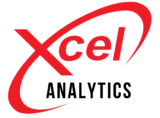
Programming With C++
C++ is a general-purpose, high-level programming language that was developed as an extension of the C programming language. It was created by Bjarne Stroustrup at Bell Labs in 1983. C++ is an extension of C, which includes the features of C and an Object-Oriented Programming (OOP) approach to programming. C++ is widely used for applications such as games, simulations, and high-performance scientific and engineering applications. It is also used for developing operating systems, device drivers, embedded systems, and other system software. C++ is known for its performance and efficiency, and it is widely used in a variety of industries such as finance, gaming, aerospace, and telecommunications. C++ is an extension of C, it is also known as a “superset” of C, that means most of the C code is valid C++ code.
- Introduction to programming and C++ language syntax: This includes an introduction to the basics of programming concepts such as data types, variables, operators, control structures, and functions.
Object-oriented programming: This covers the concepts of classes, objects, encapsulation, inheritance, and polymorphism, which are the core principles of C++.
Memory management: This covers the use of stack and heap memory, and covers topics such as dynamic memory allocation and deallocation.
Templates and generic programming: This covers the use of templates in C++, which allows the creation of generic functions and classes that can be applied to multiple data types.
Exception handling: This covers the use of try-catch blocks and the throw keyword in C++ for handling exceptions and errors.
Standard Template Library (STL): This covers the use of the STL in C++, which includes a wide range of pre-built classes and functions for tasks such as containers, iterators, and algorithms.
File handling: This covers the use of file input and output streams in C++, such as ifstream and ofstream.
Advanced topics: Depending on the course, this may include topics such as multithreading, network programming, and other advanced features of the C++ language.
Project work: In which students will have the opportunity to apply the knowledge they have learned in the course by working on a programming project.
